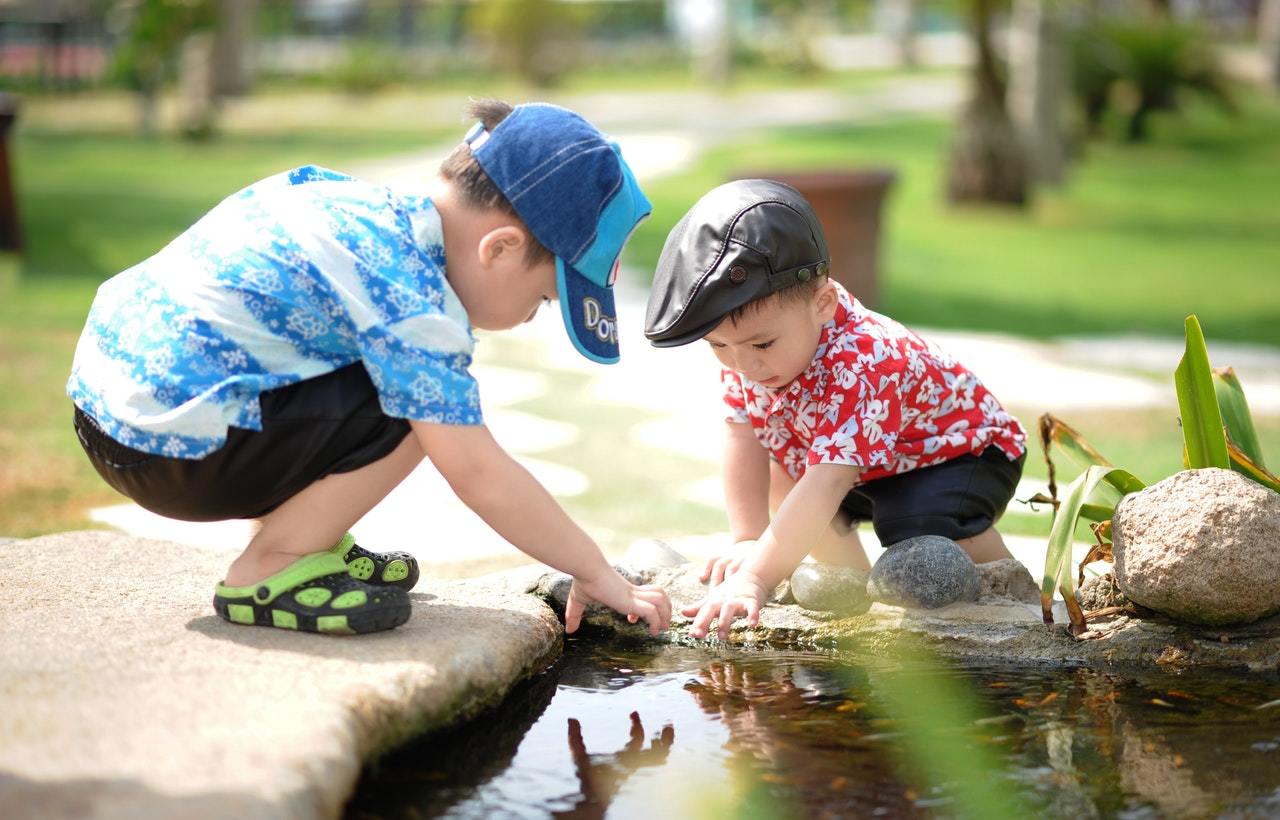How many of us remember the free-spirited summer holidays? The tree climbing sessions and the quite running to the pond to spot the frog-spawn? The need for Vitamin N(nature) can never be undermined.
Despite the growing evidence that nature plays a critical role in children’s health and development, we have witnessed in the modern age a precipitous decline in children’s contact with outdoor. This decrease prompted the journalist Richard Louv to coin the term “nature-deficit disorder” to bring attention to the growing disconnect between children and nature in the modern world and it potentially adverse effects on their health and malnutrition. Stephen Kellert, who helped pioneer the theory of “Biophilia” states in his book Birthright: People and Nature in the Modern World the wonders of nature and its effect on childhood.
Although nature-deficit disorder does not exist as a clinically diagnosed condition he says, the evidence warns of the dramatic decrease in children’s contact with nature:
– The typical child today spends less than 40 minutes of an average week outdoors, compared to four hours twenty years ago.
– 96% of the adults report the outdoors was their most important environment during childhood, while 46% of children acknowledge this importance
– 31% of children regularly play outside, compared with more than 70% of their children when they were children.
– In 2010, children spent 52 hours of an average week engaged with the electronic media of television, computers and video games. In 2005 this already high figure was forty-six hours per week.
– The average eight-year-old child’s “home range” (the area where the child plays outside on his or her own) has decreased by 96% during the past half century.
– The average child today spends 90% of his or her time indoors
“Childhood has its own way of seeing, thinking and feeling and nothing is more foolish than to try to substitute ours for theirs.”
Jean Jacques Rousseau (Emile)
The importance of biophilic values to children’s health cannot be undermined. Below is the summary reprise of these likely developmental impacts:
Affection: Children’s emotional attachment and love of nature encourages the development of their capabilities to give and receive affection, bond and relate to others, and develop a sense of caring and compassion.
Attraction: Nature’s aesthetic appeal and beauty assists children developing their aptitudes of curiosity, creativity, exploration, discovery, imagination, organizing complexity, and discerning balance and harmony.
Aversion: Coping with anxiety and fear in nature facilitates children’s handling of challenges and adversity, building self-confidence and self-esteem, and cultivating feelings of respect for the natural world.
Exploitation: The material benefits people derive from natural world, as well as the ability to exploit nature for this purpose provide children with a sense of reality, feeling of competence, physical and mental skills and independence and autonomy.
Reason: Contact with nature encourages the development of children’s cognitive skills, including understanding analysis, evaluation and judgement.
Dominion: Children’s exercise of control over nature fosters the development of physical and motor skills, problem solving, coping with adversity, courage and feelings of independence and autonomy.
Spirituality: Connecting with nature ignites children’s sense of relationship to a world beyond themselves that seems meaningful, valuable and purposeful to them.
Symbolism: Children’s representational experience of nature promotes language and verbal skills, the ability to communicate and personality and character development.

Image : Pexels
E-media are often viewed as a corrective to such reduction. But with many babies and toddlers now habitués of the virtual world — and even some nursery classrooms boasting giant digital whiteboards — electronic gadgetry is hotly debated in the early-learning context. Whatever the final verdict, it is clear that virtual experience alone fails to engage the whole child: screen-time limits children to what cognitive scientist Guy Claxton calls “eye-brain-finger” learning. It can also intrude on ‘face time’ and the socialization and language learning that are central to early child development.
Children’s experiences during early childhood nurture the conception of the child as a part of nature. It is during early childhood when children’s experiences give form to the values, attitudes, and basic orientation toward the world that they will carry with them throughout their lives. Thus, regular positive interactions within nature allow children to feel comfortable in it, develop empathy with it and grow to love it. No one can love what he or she doesn’t know through intimate association. So, give your child the much needed Vitamin N.

